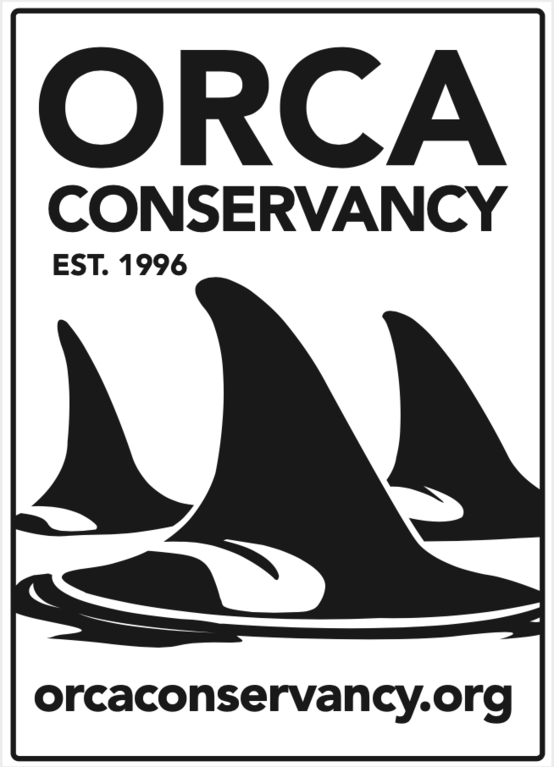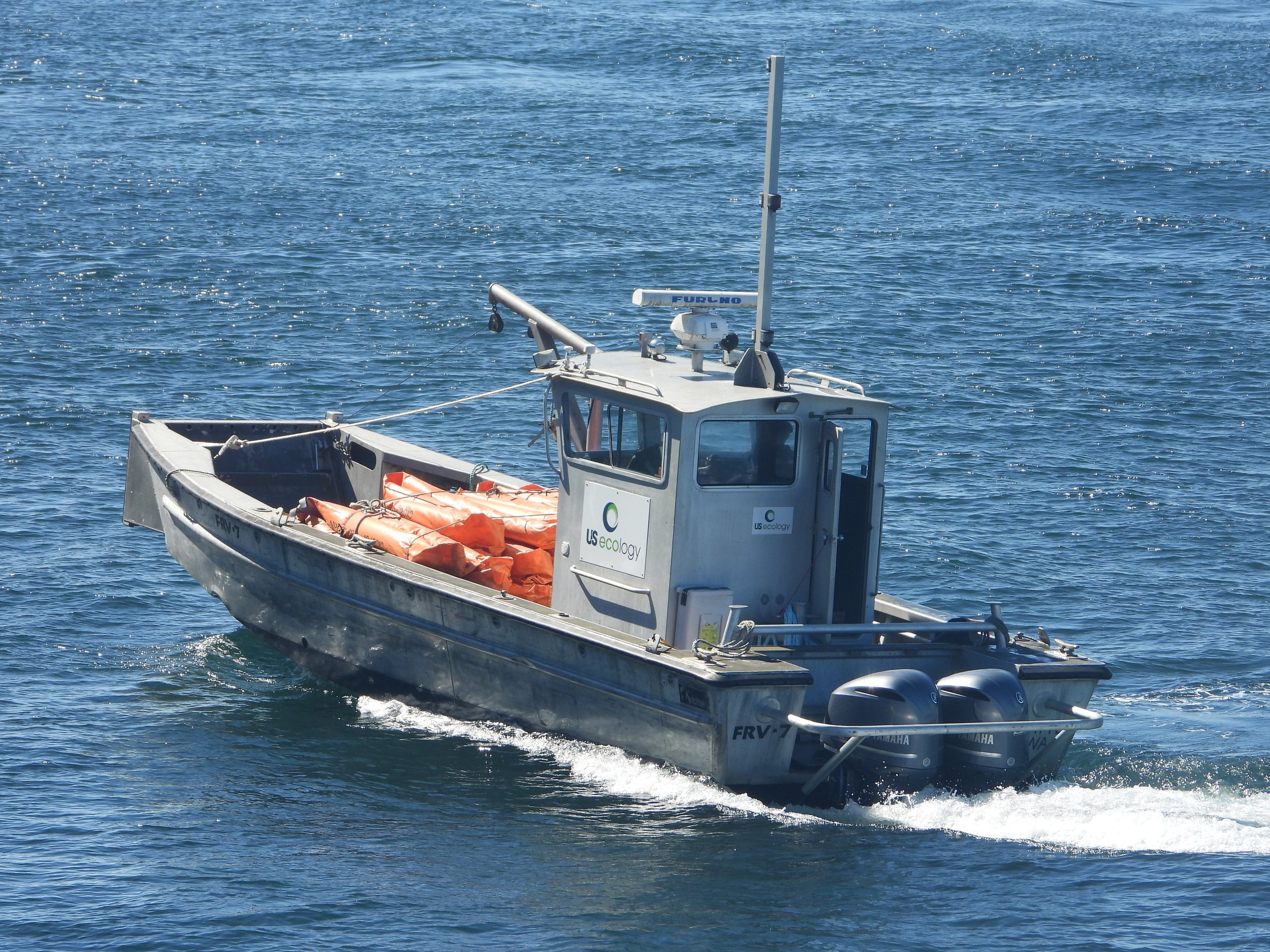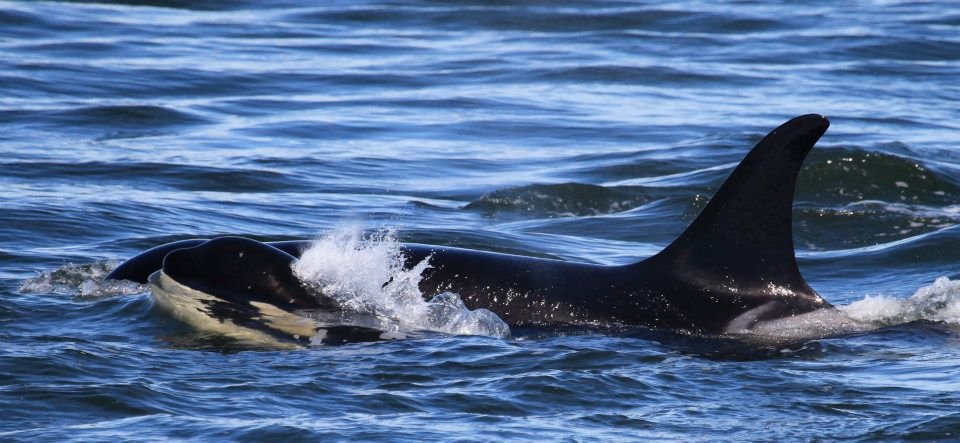
Donate
As a non-profit organization, we depend on the generous contributions and donations from our supporters to fund our work. By making a tax-deductible donation, you are supporting our ongoing work to recover the Southern Resident killer whales through our projects and initiatives.
Volunteer
As our organization grows, so do our reach and projects. We have a variety of projects and initiatives we need volunteers for, including boater education, water temperature testing, oil spill response, fundraising, and more. Get involved and join us in making a difference for this population.
ACTION ALERTS:
Below are current action alert items to help the critically endangered Southern Resident killer whales. Check back regularly for new action items.
Call your representative to oppose the proposed amendments to weaken the Marine Mammal Protection Act (MMPA). The MMPA directly mandates the sustainable management and protection of the critically endangered Southern Resident killer whales (SRKWs), their habitat, and their prey throughout U.S. waters. Under the proposed changes, marine mammals, including SRKWs, would no longer be protected from activities with high potential for disruption or injury.
Hearing Date 7/22/25
The U.S. Environmental Protection Agency (EPA) announced a proposal to repeal federal rules that limit carbon emissions from fossil fuel-burning power plants.
Submit a public comment opposing the proposed rule by the U.S. Environmental Protection Agency (EPA) to repeal limits on carbon emissions produced by power plants and weaken critical environmental protections.
Public comment due 8/7/25
Submit a public comment opposing the proposed tidal energy permit by OPALCO to the Department of Energy and Federal Energy Regulatory Commission (FERC). The project would install a massive floating turbine in Rosario Strait—critical habitat for endangered Southern Resident killer whales and Chinook salmon. With a minimal energy return (powering just 400 homes), this 10-year “pilot” risks introducing harmful underwater noise, habitat disruption, and long-term ecological damage.
Public Comments due 9/30/25
Contact your Congressional Representatives and urge them to support critical funding, programs, and staff for the National Oceanic and Atmospheric Administration.
The Southern Resident killer whales are critically endangered, and as of this writing, only 73 individuals remain. NOAA is the federal agency responsible for enforcing the Endangered Species Act (ESA), which helps protect these whales by addressing threats like habitat destruction, prey availability, and pollution.
The proposed Chehalis River Dam threatens the recovery of critically endangered Southern Resident killer whales and salmon populations, further jeopardizing their survival.
Attend the monthly Chehalis Basin Board meetings and make a public comment to stop the proposed dam construction.
Note: The public comment period for the draft environmental statement impact is projected for Fall 2025.
This will be an ongoing action item, so check back for updates!
Gravel mining in Norrish Creek, BC, by Canadian Pacific Kansas City (CPKC) is degrading important salmon habitat in the Fraser River watershed. Impacts include reduced groundwater, drying tributaries, and high egg mortality—threatening coho and chum salmon that support endangered Southern Resident killer whales.
Fisheries and Oceans Canada has ordered operations to stop pending investigation. Public input is needed to support enforcement, habitat restoration, and long-term protections.
On December 31, 2024, a structural fire destroyed part of the historic boardwalk in Telegraph Cove, including the Whale Interpretive Center (WIC) and its collection of marine mammal skeletons, artifacts, educational resources, and more.
Rebuild efforts are underway, and the WIC has reached 13% of it’s funding goal. Donate today to help rebuild the WIC
Contact your representatives and urge them to breach the lower 4 Snake River dams to protect the critically endangered Southern Resident killer whales and the wild salmon on which they depend.
The Snake/Columbia Basin is one of the largest salmon-producing river systems, producing an estimated 50% of the SRKW diet. The dams block juvenile salmon from migrating out to the ocean, and also adult salmon from migrating back to their spawning grounds in the Snake River.
Protect Cable Bay Forest and ecosystems from proposed development that threatens some of the most endangered ecosystems in Canada.
The proposed development will increase the risk of sediment runoff, pollution, and flood in the area, which will reduce the quality of habitat for marine species including wild salmon and orcas.
Resources and hotlines:
Emergencies happen, and a quick response can make a big difference. We have compiled a list of hotlines and information to help navigate how and where to report everything from boater violations to hazardous spills and marine mammal strandings.
Take action in your daily life.
There are many ways big and small in which you can help the Southern Resident killer whales by taking small actions in your daily life. We have compiled a list below of ways you can take action to help.
-
Whether it is local or federal elections, voting is one of the best ways that you can use your voice. The people we elect into office as well as the policies and legislation can make all the difference when it comes to the recovery efforts of an endangered species. The Endangered Species Act and Marine Mammal Protection Act helped recover multiple species on the verge of extinction. These are examples of policies that have been implemented and have made a difference. Even if you aren’t a resident of Washington, you can still vote in your local and federal elections for policies and representatives who support environmental protection. The ecosystem is all connected, so what will help the environment in your own community will help the global community as well.
-
In addition to voting, you can also reach out to your local representatives to urge for action on the things that you care about. You can do so by calling or writing. To find how to reach your local representatives we have linked a directory here. When speaking or writing, be sure to be kind, and make it personal. When you share your personal experiences and the reasons why you are reaching out it is more memorable and more likely to make an impact. When reaching out to advocate for the Southern Resident killer whales some suggested topics are urging for meaningful action around salmon recovery, protection of vital habitat, the removal of the lower Snake River dams, legislation to address climate change.
-
Farmed fish (Atlantic salmon) held in net pens in wild salmon habitat pose a major risk to the salmon stocks and the orcas that depend on them. Farm fish pose threats such as the potential transfer of diseases to wild species, pollution caused by the fish excrement and uneaten feed, and sea lice which can spread to wild stocks. Other concerns include escapes of farmed fish into the ecosystem which can will increase competition of resources to native fish as well as pose the potential risk to disrupt the reproduction of the wild stocks. To find sustainable seafood when shopping or dining, check out this consumer guide.
-
A way to reduce the level of pollution that enters oceans and vital waterways is to reduce or eliminate single-use plastics. When discarded items like plastic and bottles enter the ocean, they get broken down by the wind, waves, and sun, and develop into tiny fragments called microplastic. These microplastics pose a threat to our ecosystem, wildlife, and even humans through ‘trophic transfer’ which is the process of transfer of contaminants through the food chain. To help prevent plastics from entering the ocean, opt for using reusable water bottles or utensils.
-
Support responsible businesses that do their part to help protect the environment through sustainable practices and eco-friendly products. By opting to support businesses whose practices align with your values, whether they are for environmental or social responsibility, you as a consumer are sending a message to the marketplace that these things are important to you. This reinforces companies to make the right choices, while also pressuring companies losing your business to make the shift to better practices.
-
Many household cleaners, lawn care products, car cleaners, and more contain toxic ingredients that can enter the ecosystem through groundwater and water runoff. These chemicals then enter the food chain and through trophic transfer make their way into the bodies of Southern Resident killer whales where toxins are stored in fatty lipid cells. These toxins are transfered to new calves when they are born, and also end up in the mother’s milk, causing young calves to be exposed to high levels of dangerous toxins. Nonyphennol Ethoxlates (NPE’s) which are found in laundry detergent and all-purpose cleaners are endoctine disrupters, which disrupts the reproductive system. Phosphates which are water softens found in dishwasher soap and laundry detergent pose threats by entering waterways and cause an overgrowth of algae that removes oxygen from water, killing fish and other animals. To help the SRKWs avoid products that contain the following chemicals: chlorine bleach, alcohol, quaternary compounds, pine oil, ethyl alcohol, phosphates, synthetic perfume, and NPEs.
-
By shopping local you are not only supporting your local community, you are also helping to reduce your carbon footprint. By supporting your local farmers and growers, you are helping reduce pollution from fossil fuels by reducing the amount of transportation it takes to get your food to you.
-
Climate Change poses a major threat to the endangered Southern Residents by the warming of rivers and melting of mountain snowpack that feed rivers that salmon need to survive. Salmon is the main food source of the SRKWs, when the salmon population declines this negatively impacts the SRKWs. You can help by reducing your carbon footprint. There are many easy ways in which you can do this daily. Things like carpooling, purchasing an electric vehicle, switching to energy-efficient appliances, reducing the amount of electricity you use, are all ways in which you can help.











